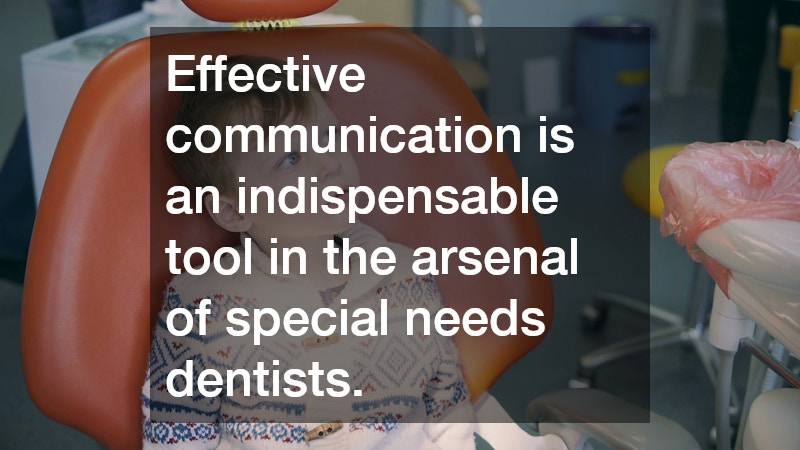How Special Needs Dentists Use Gentle Techniques for Anxiety-Free Visits
Visiting the dentist can be a daunting experience for anyone, but for individuals with special needs, this routine appointment may provoke heightened anxiety and stress. Recognizing this challenge, special needs dentists employ a variety of gentle and innovative techniques to ensure anxiety-free visits. These professionals are not only trained in standard dental practices but also possess additional expertise in creating a calming and supportive environment.
In this blog post, we will explore how special needs dentists utilize these gentle techniques to provide compassionate care to their patients.
Understanding the Unique Needs
Special needs dentists are well aware that each patient comes with unique challenges and requirements. They take the time to understand the specific sensitivities, fears, and conditions of their patients, whether physical, developmental, or emotional. By conducting thorough assessments and engaging with caregivers and families, these dentists can tailor their approach to fit each individual’s needs. For instance, some patients may have sensory sensitivities that necessitate adjustments in lighting and sound during treatment. Establishing a thorough understanding from the outset is key to reducing anxiety and making the dental visit as comfortable as possible.
Gentle Communication Techniques
Effective communication is an indispensable tool in the arsenal of special needs dentists. They use simple, clear language and visual aids to explain what will happen before, during, and after the dental procedure. By establishing a sense of predictability and transparency, anxiety is significantly reduced. For patients who are non-verbal or have speech difficulties, dentists rely on body language and alternative communication methods such as picture boards or hand gestures. This approach helps to build trust and provides patients a sense of control over their experience.
Implementing Behavioral Management Strategies
Behavioral management strategies play a crucial role in the repertoire of techniques used by special needs dentists. Techniques such as positive reinforcement, desensitization, and tell-show-do are frequently employed to ease dental anxiety. For example, positive reinforcement through praise or small rewards can encourage cooperation and reduce fear. Moreover, desensitization involves gradual exposure to the dental environment, slowly acclimating patients to the surroundings and processes. These strategies are designed to create a reassuring atmosphere that minimizes stress and anxiety.
The Use of Sedation and Anesthesia
For some individuals, especially those with severe anxiety or complex medical conditions, the use of sedation or anesthesia may be necessary. Special needs dentists are trained to safely administer minimal to moderate sedation techniques when suitable. Options like nitrous oxide (laughing gas) or oral sedatives are employed to help patients relax during treatment. In cases where more profound anxiety or behavioral challenges exist, general anesthesia may be considered. This approach is carefully evaluated and personalized, ensuring that the patient’s comfort and safety are prioritized.
Designing a Sensory-Friendly Environment
Creating a sensory-friendly environment is another key aspect of reducing anxiety for special needs patients. Special needs dentistry often involves the adaptation of the physical space to minimize discomfort. This can include dimming lights, minimizing noise, and offering weighted blankets or noise-canceling headphones. Offices are also equipped with visual distractions, such as videos or interactive tablets, to help divert attention and reduce stress. The fact remains that every effort is made to cater to the sensory and emotional needs of patients, ensuring a calm and pleasant dental experience.
Conclusion
Special needs dentists are dedicated to providing dental care that is not just effective but also empathetic and tailored to the diverse needs of their patients. By employing a combination of gentle techniques, thoughtful communication, and sensory adjustments, they strive to ensure every visit is anxiety-free. This approach not only makes dental visits more manageable for patients but also contributes to better oral health outcomes. By understanding and adapting to the unique requirements of each patient, special needs dentists play a critical role in promoting comprehensive dental care for individuals with special needs.

